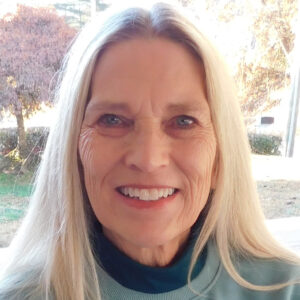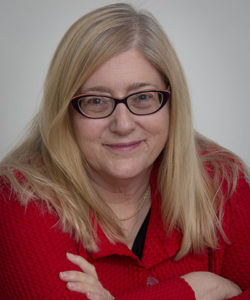The Vista of Years
In this decade of my life, I find writing about my childhood in the 1960s to be comforting. I don’t write exclusively about that era; many of my personal essays chronicle more recent years with my husband and daughter and our rural life in Western North Carolina. But I often find myself recollecting my early years in my hometown, Marion, North Carolina, where I was born and still live. My childhood home was a two-story wood frame house with gray asbestos shingle siding in a working-class neighborhood. This neighborhood was still very rural at the time, with fenced pastures, barns, vegetable gardens, and abundant flowers in neat yards. Many homes, including my family’s, had front porches where people peeled apples or strung green beans on summer days and rested on summer evenings.
Our sloping street was quiet then, with little traffic, so we kids could play dodge ball there, or on snowy winter days slide down the street on makeshift sleds. Most families had dogs; I had a collie, Laddie, and a horse, Thunder. The neighborhood was friendly. Adults welcomed children into their homes to eat meals and to play with their own children and grandchildren. My parents worked in hosiery mills—small, privately owned businesses, which, along with cotton mills and furniture factories, provided livelihoods for residents in our town. Farmers still made a living in our county. To me, my family never seemed deprived of anything. More prosperous townspeople might have considered us poor, but we were not. Our lives were rich in every possible way. Admittedly, when I think of my childhood I tend to romanticize it, knowing full well there were moments of tragedy, discord, and frustration. And I have not ignored these somber moments in my essays. Still, I have chosen to focus on happier times because that’s what I mainly remember.
When I was a student in the Warren Wilson College MFA Program in the early 1980s, my teacher, David Huddle, assigned me a challenge: to complete a lengthy autobiographical exercise, recalling incidents from my life. I was twenty-six. I had already been married several years and considered myself an experienced adult. And yet I was still immature. I believe David felt that I needed to broaden my writing. Looking honestly at my life might give me ideas beyond the imaginary scenarios I tried to create in my fiction. At the time, I was inspired by writers like Ray Bradbury and television series like The Twilight Zone, and my stories had little connection with the real world. David required me to read Raymond Carver, Jayne Anne Phillips, and other contemporary writers to open my eyes to what was being written at the time. My prose was elevated by reading these writers, but it took some effort to lose my stilted style. I began to incorporate memories into my short stories, but it took me many years to find my own voice. Only recently have I begun to focus on creative nonfiction—personal essays—and truly write about what I have experienced. In a recent letter to David Huddle I told him I’d finally gotten the hang of writing what he wanted me to explore—my own life—so many years ago. And I’m grateful he encouraged me to do so.
My first essay collection, A Place That Was Home (eLectio Publishing, 2016), was my leap into nonfiction, and I haven’t turned back. Other than poetry, which is also mainly autobiographical, I now write personal essays exclusively. And I know that on some level I’m trying to relive my past through writing.
Before my mother died in 2020, she told me about her own Great Depression childhood in the Clinchfield cotton mill village in Marion. I had often heard these colorful stories about the Marion textile strike in 1929 and her other adventures. In her last years, I interviewed her, wanting to capture these stories on paper. Now that she’s gone I turn again to her stories, and while I’m writing about her—which I frequently do, as I do about my father, whom I lost in 2006—I find I am with her, hearing her voice again, and in a sense spending time with her. I feel she has been alive with me for a while, and this is a great comfort.
When I look at my early short story collections and novels, I sometimes think how naïve I was when I wrote them. Even in my forties, when my first short story collections Blue Ridge Shadows and The Stone Carver (Iris Press) were published, I hadn’t really experienced much loss. Both of my parents were alive, and my greatest grief was yet to come in their deaths and that of my older brother, Butch, who was a confidante and friend. I know a writer doesn’t have to be old to create great literature. After all, two of my favorite authors, D.H. Lawrence and Anton Chekhov, were in their forties when they died and had already written brilliant and enduring works. Yet, time seems to have given me a depth of understanding about life, in its joy and sorrow, that I had lacked before. That understanding has enhanced my work.
My recently released essay collection, All We Have Loved (Finishing Line Press, 2023), is a testament to the importance of memory. In this book, as in A Place That Was Home, I explore memories of my childhood in the 1960s, more recent times with my husband and daughter, and stories about long-gone family members, whom I never met and know only from photographs and from recollections of others. And, of course, my mother’s stories are in there, featured especially in the book’s final essay “Her Clinchfield Childhood.” The book’s cover image is a photograph of my mother with her siblings in front of their Clinchfield cotton mill house. I wish she could read the book and see the cover. But at least I have shared her stories and her image with readers, which pleases me immensely.
My current stories may lack the idealism and naivete of my earlier work—and maybe there’s something to be said for the value of such youthful qualities. But in my maturity, I have learned to write from the heart and have found a natural and comfortable way of expressing myself. As D.H. Lawrence related in his poem “Piano,” memories take one “back down the vista of years.” My memories allow me to relive moments in my life, and I’m honored to share those memories with others. That’s the vista of years.



3 Responses
This was a lovely essay. I was reminded of Ray Bradbury’s Dandelion Wine when I read your recollections. As that is one of my favorite books, I consider it high praise. Congratulations on your newest book!
Thank you, Anne! My favorite Bradbury book is The October Country and favorite story in there is “The Jar.” Wow. I’m still a Bradbury fan.
Love this! Thanks so much for sharing my thoughts with your readers.